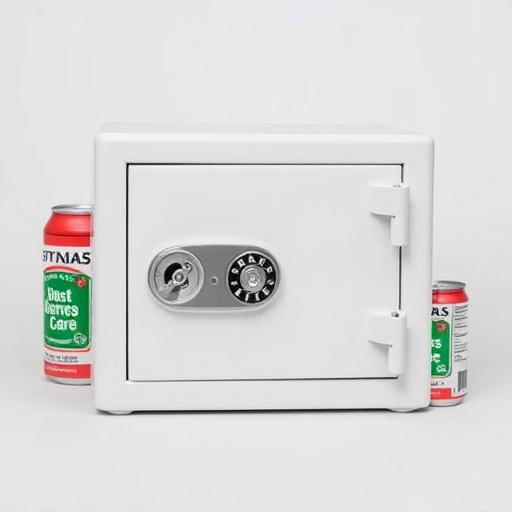Criminals use innovative techniques like hiding counterfeit goods in seemingly harmless items like peanut butter jars (Fake Peanut Butter Security Containers) to enter the market undetected, taking advantage of consumer trust in well-known brands. These methods pose challenges for law enforcement and consumers alike. While creative, repurposing food products for secret storage raises ethical concerns regarding health risks and may attract unwanted attention. It's crucial to explore more suitable secure storage alternatives.
In the realm of covert storage, everyday household items can serve as ingenious concealment solutions. This is particularly evident in the case of fake peanut butter containers, designed to secretly hold sensitive materials. Understanding how these concealed storage methods are employed in crafting fake cleaning products offers a fascinating glimpse into the world of secrecy and security.
This article explores the creative use of such tactics, delving into both their practical applications and ethical dilemmas.
- Understanding Covert Storage and Its Applications in Fake Cleaning Products
- The Fake Peanut Butter Security Container: A Creative Concealment Solution
- Potential Risks, Benefits, and Ethical Considerations of Using Fake Household Items for Secrecy Purposes
Understanding Covert Storage and Its Applications in Fake Cleaning Products
In the realm of counterfeit goods, covert storage is a clever method used by manufacturers to conceal fraudulent products within seemingly innocent everyday items. One intriguing example is the use of fake peanut butter as a security container for storing sensitive materials or even counterfeit currency. This innovative approach takes advantage of the natural, appealing packaging of peanut butter, making it an ideal decoy. By incorporating hidden compartments, criminals can discreetly store and transport their illicit goods, ensuring they remain undetected by authorities.
The application of covert storage in fake cleaning products is a subtle yet powerful tactic. These products, designed to mimic legitimate brands, often contain hidden spaces that can accommodate various items, from small electronic devices to cash or even drugs. This technique allows criminals to leverage the trust consumers place in well-known cleaning brands, making it easier for counterfeit goods to enter the market unnoticed. Understanding these storage methods is crucial for both law enforcement and consumers, as it helps identify potential sources of fraudulent activities and ensures the safety of genuine products in the market.
The Fake Peanut Butter Security Container: A Creative Concealment Solution
In the realm of covert storage, creativity is key, and one innovative solution has emerged in the form of the Fake Peanut Butter Security Container. This unassuming kitchen staple serves as a cunning concealment method for keeping valuable items out of sight and secure. By mimicking the appearance of traditional peanut butter jars, this clever contraption offers an unorthodox way to store small objects discreetly.
Designed with precision, the fake peanut butter jar looks every bit like its edible counterpart, right down to the detailed labeling and packaging. It provides a unique advantage for homeowners seeking to hide essential items or even emergency supplies without raising suspicion. Whether it’s stashing cash, precious jewelry, or vital documents, this container offers a safe haven within arm’s reach, ensuring peace of mind with its seemingly innocuous facade.
Potential Risks, Benefits, and Ethical Considerations of Using Fake Household Items for Secrecy Purposes
Using everyday household items as secret storage spaces, such as hiding a Fake Peanut Butter Security Container, presents both potential risks and benefits. On one hand, it offers a creative solution for those seeking discreet places to store sensitive materials or hidden treasures. This method can be particularly appealing to people who want to keep their belongings secure without investing in specialized containers or locks. Moreover, utilizing common items reduces the risk of attracting attention due to unusual purchases, making it an attractive option for those prioritizing secrecy.
However, there are significant ethical considerations. Modifying or repurposing food products like peanut butter jars for security purposes could be seen as unethical and potentially harmful, especially if not done responsibly and with full knowledge of the product’s contents. Additionally, relying on such methods may lead to unforeseen consequences, such as spoilage or health risks associated with prolonged storage of edible items in non-ideal conditions. Thus, while it might seem appealing to hide valuables in common household products, it’s crucial to weigh these potential drawbacks and explore alternative secure storage options when necessary.
The concept of covert storage, as demonstrated by the innovative Fake Peanut Butter Security Container, offers a unique approach to safeguarding sensitive items. While it presents an intriguing solution for concealing valuables within everyday household products, it’s essential to weigh the ethical implications and potential risks involved. As we navigate this modern method of secrecy, understanding the balance between creative problem-solving and responsible practices is key.
